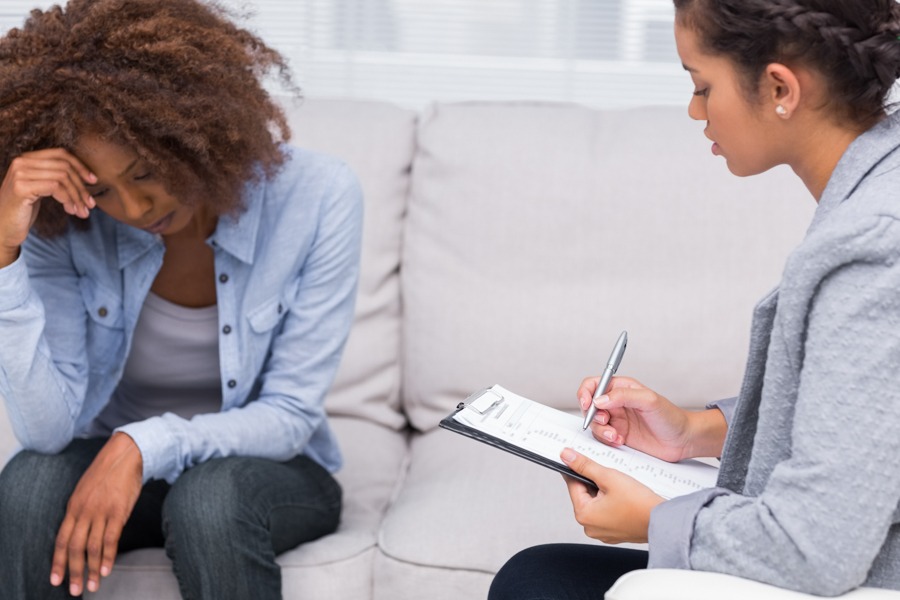Mental health is a topic that has become increasingly prevalent in today’s society. With the increasing awareness and understanding of mental health, there has been a growing concern for those who may need additional support and treatment. One option that may come to mind is rehabilitation, typically associated with substance abuse. However, can you go to rehab for mental health?
Learn about rehab for mental health at our behavioral health and wellness center at Hyattsville. We can help you achieve a healthier, happier life.
Rehab for Mental Health
Rehabilitation for mental health is a crucial aspect of recovery for individuals struggling with mental illness. It involves a comprehensive treatment approach to help individuals improve their overall well-being and functionality.
Our Psychiatric Rehabilitation Program in Maryland supports individuals in their journey toward recovery by providing them with the necessary tools and resources to manage their symptoms, maintain stability, and improve their quality of life. Our highly trained staff works closely with each individual to develop a personalized treatment plan that addresses their needs and goals.
Additionally, Elevated Wellness offers outpatient rehab for mental health as part of our continuum of care. This option allows individuals to receive treatment while still living at home and attending work or school. Outpatient rehab includes individual therapy sessions, group therapy, medication management, and other supportive services tailored to meet each person’s needs.
If you or a loved one requires treatment, our outpatient mental health center in Maryland is here to help. Our staff is excited to welcome you into our care.
What Types of Mental Health Conditions Do Rehab Programs Treat?

Mood Disorders: Mood disorders like depression and bipolar disorder can also be treated in rehab programs. These programs may incorporate therapy and medication management to help individuals manage their symptoms.
Personality Disorders: Rehab programs may also address personality disorders such as borderline personality disorder or narcissistic personality disorder. Treatment for these conditions may include individual and group therapy focused on managing emotions and improving interpersonal skills.
Trauma-Related Disorders: Many individuals in rehab have experienced some form of trauma in their lives, which can lead to post-traumatic stress disorder (PTSD) or other trauma-related disorders. Rehab programs often offer specialized therapy for these conditions, including cognitive behavioral therapy (CBT).
Co-occurring Mental Health Conditions: It is not uncommon for individuals struggling with addiction to also have a co-occurring mental health condition, such as depression or anxiety. In these cases, rehab programs may provide integrated treatment that addresses both the addiction and the co-occurring disorder simultaneously.
Our mental health disorder treatment in Maryland can help you or a loved one find healing. Don’t hesitate to seek professional help.
How Do Rehab Centers Treat Mental Health Alongside Substance Abuse?
One of the primary ways that rehab centers integrate mental health treatment alongside substance abuse recovery is through dual diagnosis treatment. This approach involves addressing both the addiction and underlying mental health disorders simultaneously. This is crucial because treating one without addressing the other can lead to a higher risk of relapse.
To achieve this, rehab centers employ a multidisciplinary team consisting of counselors, therapists, psychiatrists, and other medical professionals who work together to develop an individualized treatment plan for each patient. This plan may include a combination of therapies such as cognitive-behavioral therapy (CBT), dialectical behavior therapy (DBT), medication management, group therapy, and individual counseling sessions.
Mental Health Treatment Options
Cognitive Behavioral Therapy (CBT): This approach focuses on identifying and changing negative thoughts and behaviors that contribute to mental health issues. It helps individuals learn coping strategies and problem-solving skills to manage their symptoms.
Dialectical Behavioral Therapy (DBT): Dialectical Behavioral Therapy (DBT) combines elements of CBT with mindfulness techniques to help individuals regulate emotions, improve relationships, and develop coping skills for distress tolerance.
Psychoeducation: This involves educating individuals about their mental health condition, its causes, symptoms, and treatment options. It can help individuals better understand their condition and make informed decisions about their recovery.
Group Therapy: Group therapy sessions bring together individuals with similar mental health conditions to share experiences, provide support, and learn from one another under the guidance of a therapist.
Family Therapy: Family therapy involves working with an individual’s family members to improve communication, resolve conflicts, and create a supportive environment for their recovery.
Mindfulness-Based Interventions: These interventions focus on developing present-moment awareness through mindfulness practices such as meditation and yoga. They can help individuals better manage stress and reduce symptoms of anxiety or depression.
Psychodynamic Therapy: This approach explores past experiences and how they may influence an individual’s thoughts, feelings, and behaviors. It can help individuals gain insight into underlying issues contributing to their mental health problems.
When Should I Seek Rehab for Mental Health?

Persistent and severe symptoms: If an individual is experiencing persistent and severe symptoms of a mental health disorder, such as depression or anxiety, it may be a sign that they need professional help. These symptoms may include intense feelings of sadness, hopelessness, panic attacks, or difficulty functioning in daily life.
Impact on daily life: Mental health concerns can significantly impact an individual’s ability to function in their daily life. This can include difficulty maintaining relationships, performing at work or school, or taking care of personal responsibilities. If these persistent challenges interfere with everyday life, it may be a sign that seeking treatment is necessary.
Self-medication: Using drugs or alcohol to cope with mental health issues is a red flag that professional help may be needed. Substance abuse can worsen symptoms and make it difficult to address underlying mental health concerns effectively.
Interference with relationships: Mental health issues can also affect an individual’s relationships with friends and family members. They may become isolated or have conflicts due to their behavior or mood changes.
History of relapse: If an individual has previously received treatment for a mental health concern but has experienced a relapse, it may be time to seek additional support through rehab.
Safety concerns: When an individual’s mental health poses a risk to themselves or others, immediate treatment is necessary. This could include thoughts of self-harm or suicide attempts.
Seek Rehab for Mental Health at Elevated Wellness
Don’t let mental health struggles control your life any longer. Seek rehab at Elevated Wellness and take the first step towards a brighter future. Contact us today to learn more about our programs and how we can help you on your journey toward mental wellness.
